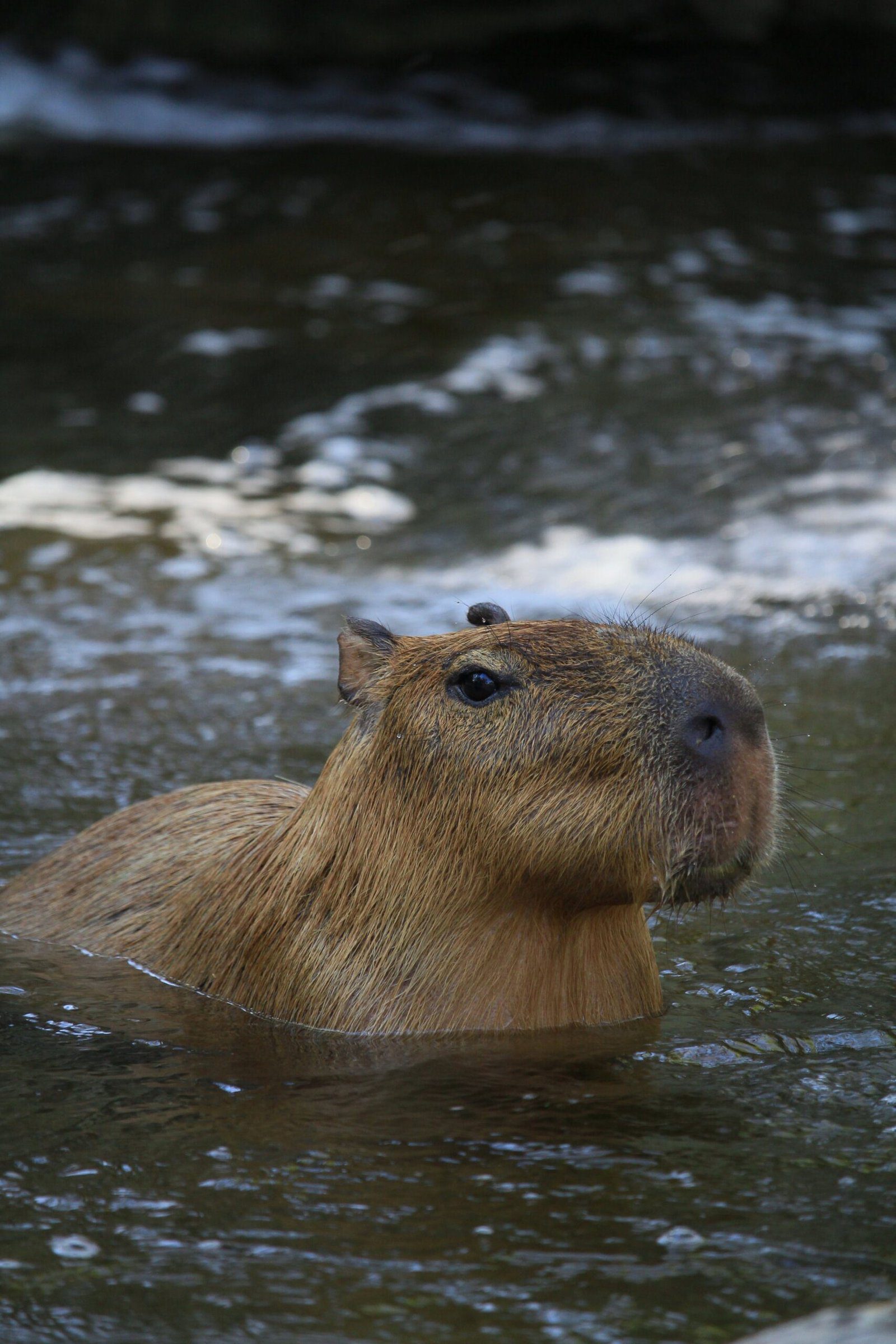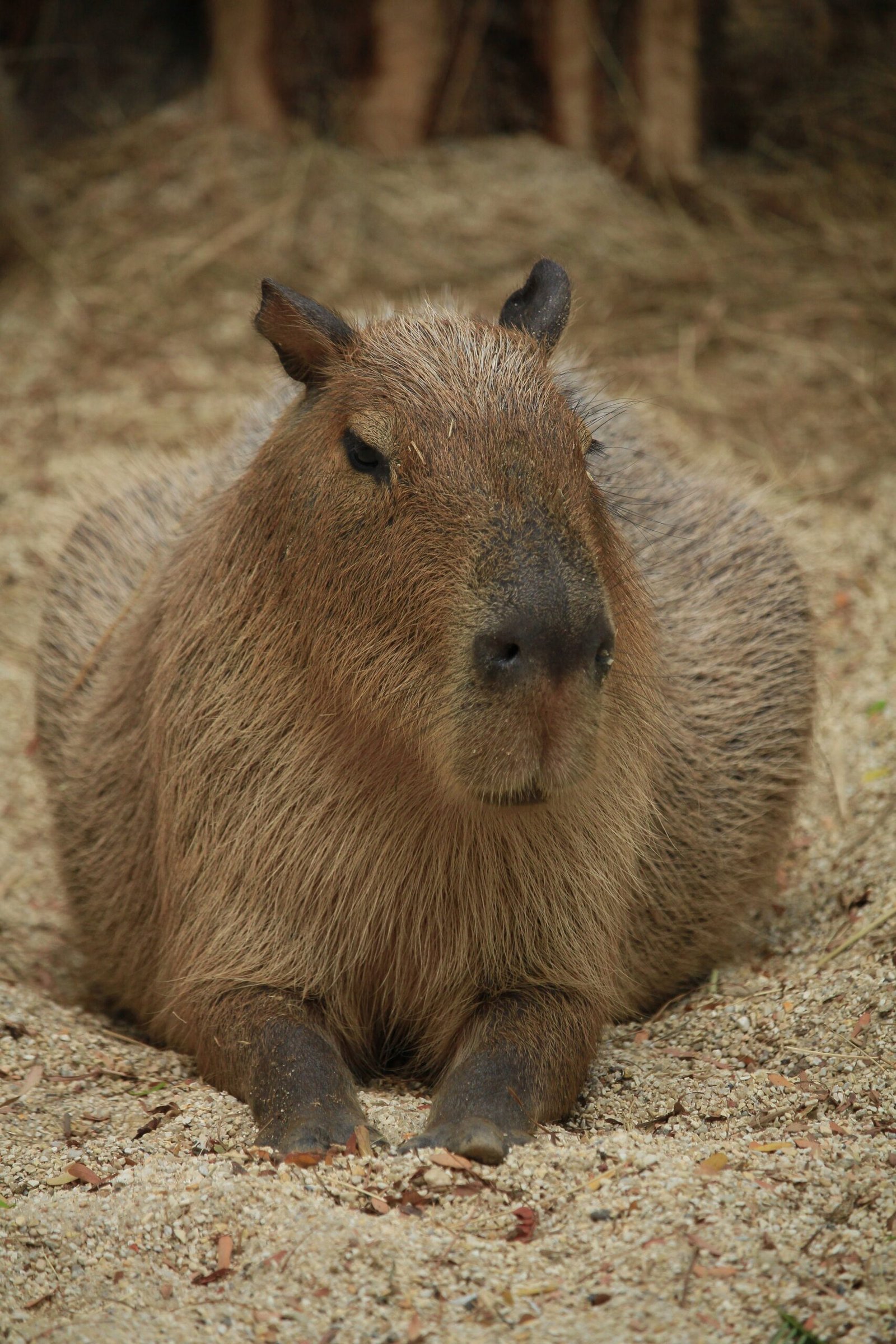Table of Contents
Have you ever wondered if it's possible to adopt a capybara as a pet? Well, the answer might surprise you. Capybaras, known for their friendly and sociable nature, have become increasingly popular as exotic pets. However, before you start envisioning the adorable capybara cuddling up on your couch, there are a few things you need to know. From understanding their unique habitat requirements to legal considerations, this article will guide you through the process of adopting a capybara and help you decide if it's the right choice for you.

Location and Legal Considerations
Capybaras as pets
If you are considering adopting a capybara as a pet, there are several important factors to keep in mind. Capybaras are unique and fascinating creatures that can make wonderful companions, but it's crucial to understand the legal restrictions and requirements before bringing one into your home.
Legal restrictions and requirements
Before adopting a capybara, it's essential to research the legal restrictions and requirements in your area. Capybaras are not legal to keep as pets in all states and countries. Some jurisdictions require permits or licenses to own a capybara, while others strictly prohibit their possession. It's crucial to familiarize yourself with the specific laws and regulations in your location to ensure compliance.
Understanding Capybara as a Pet
Capybara characteristics
Capybaras are the largest rodents in the world and have several distinctive characteristics that make them unique pets. They have a barrel-shaped body, webbed feet, and a large head with small ears and eyes. Capybaras are known for their thick, coarse hair, which can range in color from light brown to reddish-brown. They also possess long, sharp incisor teeth that constantly grow throughout their lives.
Capybara behavior
Capybaras are highly social animals that thrive in groups. They have a gentle and docile nature, often getting along well with other animals, including dogs and cats. However, proper socialization from an early age is crucial to ensure good behavior. Capybaras are also known for their curious and intelligent nature, making them engaging and interactive pets.
Capybara lifespan
The average lifespan of a capybara is around 8 to 12 years. However, with proper care, some capybaras have been known to live up to 15 years or more. It's important to be aware of their lifespan when considering adopting a capybara, as they require a long-term commitment and dedicated care.
Capybara size and habitat needs
Capybaras are large animals, with adult males weighing between 77 and 146 pounds and adult females ranging from 66 to 112 pounds. Their size necessitates a spacious and secure habitat to accommodate their natural behaviors. Capybaras require access to both grassy areas and water, as they are semi-aquatic animals. A well-designed enclosure with a pool or access to a pond is essential to meet their habitat needs.
Capybara diet
Capybaras are herbivores and have specific dietary requirements. Their diet primarily consists of grasses, aquatic plants, fruits, and vegetables. It is important to provide them with a varied and balanced diet to ensure they receive the necessary nutrients. Hay and fresh water should also be available at all times.

Caring for a Capybara
Finding a reputable breeder or rescue
When looking for a capybara, it is crucial to find a reputable breeder or rescue organization. A reputable source will provide a capybara that has been well cared for, properly socialized, and has received appropriate veterinary care. Avoid purchasing capybaras from illegal or unethical sources to discourage the harmful exotic pet trade.
Costs of owning a capybara
Owning a capybara comes with various financial responsibilities. The initial cost of acquiring a capybara can range from several hundred to a few thousand dollars, depending on the source and any travel expenses involved. Additionally, ongoing expenses include providing a suitable habitat, veterinary care, and a nutritious diet. It's essential to consider these costs and ensure you have the financial means to provide for a capybara throughout its lifespan.
Preparing a suitable habitat
Creating a suitable habitat for a capybara requires careful planning and consideration. The enclosure should be large enough to accommodate the capybara's size and need for exercise. It should include both grassy areas and a water feature to mimic their natural habitat. Additionally, providing shelters and hiding places will allow them to feel secure and comfortable. Regular maintenance and cleaning are also necessary to ensure a healthy living environment.
Providing a balanced diet
A balanced diet is crucial for the overall health and well-being of a capybara. Their diet should primarily consist of fresh grasses, vegetables, and fruits. It is essential to provide high-quality food and avoid feeding them excessive amounts of treats or processed foods. Regularly consulting with a veterinarian who specializes in exotic pets is advisable to ensure your capybara's nutritional needs are met.
Socialization and companionship
Capybaras are social animals and thrive in the company of others. It is important to provide them with opportunities for socialization and companionship. This can include introducing them to other capybaras, if possible, as well as allowing interactions with other compatible animals under supervised conditions. Spending quality time with your capybara and providing mental stimulation through enrichment activities is also crucial for their well-being.
Regular veterinary care
Capybaras require regular veterinary care to maintain their health. Finding a veterinarian who specializes in exotic animals, particularly capybaras, is highly recommended. They can provide routine check-ups, vaccinations, and address any health concerns that may arise. Regular dental care, including monitoring the growth of their teeth and potential trimming, is also essential. Be prepared for potential veterinary expenses and ensure that you have access to a qualified professional who can provide appropriate care.
Exercise and mental stimulation
Capybaras have a natural need for exercise and mental stimulation. Providing ample space for them to roam, swim, and engage in physical activity is crucial for their overall well-being. Offering toys, puzzles, and other interactive forms of enrichment can help keep them mentally stimulated and prevent boredom. Regular playtime and interaction with their owners also contribute to a well-rounded and happy capybara.
Handling and training
Capybaras can be trained to some extent, but it requires patience, consistency, and positive reinforcement-based training methods. Proper handling techniques should be learned to ensure the safety of both the capybara and the handler. Regular gentle handling and training sessions can help foster trust and create a positive bond between the capybara and its owner.
Challenges of Capybara Ownership
Legal restrictions and permits
One of the main challenges of capybara ownership is navigating the legal restrictions and permit requirements in your area. It is essential to understand and comply with the local laws to avoid potential legal issues and ensure the well-being of your capybara.
Space requirements
Capybaras are large animals and require a significant amount of space to thrive. Providing them with a suitable habitat can be challenging, especially if you have limited outdoor space. It is important to ensure the enclosure meets their size and activity needs to promote a healthy and happy capybara.
Habitat maintenance
Maintaining a capybara's habitat can be time-consuming and labor-intensive. Regular cleaning, maintaining the pool or water feature, and ensuring the grassy areas are adequately maintained are essential for a healthy living environment. It is crucial to consider the ongoing maintenance requirements before adopting a capybara.
Social needs and companionship
Capybaras are highly social animals and require adequate socialization and companionship to thrive. Meeting these needs can be a challenge, particularly if you don't have access to other capybaras or compatible animals. Providing them with alternative forms of enrichment and spending quality time with them can help address their social needs to some extent.
Specialized veterinary care
Finding a veterinarian who has experience and knowledge of capybara care can be challenging, especially in areas where exotic pets are less common. Capybaras have unique health requirements, and it's crucial to have access to a qualified professional who can provide the necessary specialized care when needed.
Potential aggression or destructive behavior
While capybaras are generally docile and gentle, there is always the potential for aggression or destructive behavior. It's important to be aware of their natural instincts and monitor their behavior closely. Early socialization, positive reinforcement training, and providing appropriate outlets for their energy can help prevent or mitigate such behavior.
Allergies or sensitivities
Some individuals may have allergies or sensitivities to capybaras or their habitat. It is important to consider these factors, especially if there are household members or frequent visitors with allergies. Regular cleaning and proper ventilation can help minimize potential allergens.

Alternatives to Capybara Adoption
Similar exotic pets
If adopting a capybara is not feasible or permitted in your area, there are several similar exotic pets that may be suitable alternatives. Animals such as degus, chinchillas, or guinea pigs share some similarities with capybaras in terms of size, behavior, and habitat requirements. Researching and consulting with experts can help you find a suitable alternative that meets your preferences and local regulations.
Domesticated rodent options
If you are looking for a smaller and more easily manageable pet, various domesticated rodent options are popular choices. Animals like rats, mice, hamsters, or gerbils can make friendly and low-maintenance companions. They require less space and may be more suitable for individuals with limited time or resources.
Considerations for Potential Owners
Personal suitability and compatibility
Before considering capybara ownership, it's crucial to assess your personal suitability and compatibility with this unique pet. Capybaras require a significant time commitment, financial resources, and a willingness to provide specialized care. Additionally, it is important to evaluate your living situation, including available space and local regulations.
Financial responsibility
Owning a capybara can be financially demanding, with costs including initial purchase, habitat setup, ongoing care, and veterinary expenses. It is crucial to assess your financial situation and ensure that you can comfortably provide for the long-term needs of a capybara before making a commitment.
Time commitment
Capybaras require significant time and attention from their owners. They need daily interaction, mental stimulation, and exercise. It's important to be honest with yourself about your available time and ability to meet their needs on a consistent basis.
Emergency preparedness
It's essential to have an emergency plan in place before bringing a capybara into your home. This includes identifying a qualified exotic animal veterinarian, having appropriate enclosures or carriers for transportation, and being prepared for unexpected health emergencies. Planning ahead can help ensure the safety and well-being of your capybara in case of emergencies.
Researching Capybara Ownership
Books and literature
There are several books and literature available that can provide valuable information on capybara care and ownership. These resources cover topics such as habitat setup, diet, behavior, and general care. Some recommended titles include “The Capybara Handbook” by Veronica Ross and “Capybaras: A Natural History” by Laura Marsh.
Online resources
The internet is a valuable source of information for capybara owners. There are numerous websites, forums, and social media groups dedicated to capybara care and ownership. These online communities provide an opportunity to connect with experienced capybara owners, ask questions, and share experiences.
Contacting capybara owners or experts
Reaching out to experienced capybara owners or experts can provide firsthand insights and advice on capybara care. Many capybara owners are passionate about their pets and are often willing to share their knowledge and experiences. Connecting with them through online platforms or local exotic pet organizations can provide valuable guidance and support.
Ethical Considerations
Capybara natural habitat conservation
Capybaras are native to South America and play a crucial role in the ecosystems they inhabit. Before considering capybara adoption, it is important to be mindful of the impact on their natural habitat and overall conservation efforts. Supporting organizations and initiatives dedicated to capybara conservation can contribute to the preservation of these incredible creatures.
Breeding practices and sustainability
If you are considering adopting a capybara, it is crucial to ensure that the breeding practices are ethical and sustainable. Avoid purchasing capybaras from breeders who prioritize profit over the well-being of the animals. Look for breeders who prioritize the health, genetic diversity, and long-term sustainability of the capybara population.
Rescuing and adopting capybaras
Adopting a capybara from a rescue organization is a compassionate choice that can provide a loving home for an animal in need. Rescued capybaras may have experienced neglect, abuse, or abandonment, and giving them a second chance at a happy life is a rewarding experience. Contacting local exotic animal rescues or shelters can provide information on available capybaras for adoption.
Conclusion
Adopting a capybara can be a rewarding experience for those who are well-prepared and committed to providing the necessary care. By understanding capybaras' characteristics, behavior, and specific needs, prospective owners can make informed decisions about suitability and responsibility. It is vital to consider the legal restrictions, financial implications, and time commitments associated with capybara ownership. Conducting thorough research, consulting with experts, and evaluating ethical considerations will help ensure the well-being and happiness of both you and your capybara companion.

